Photo Credit: Praise Abatan
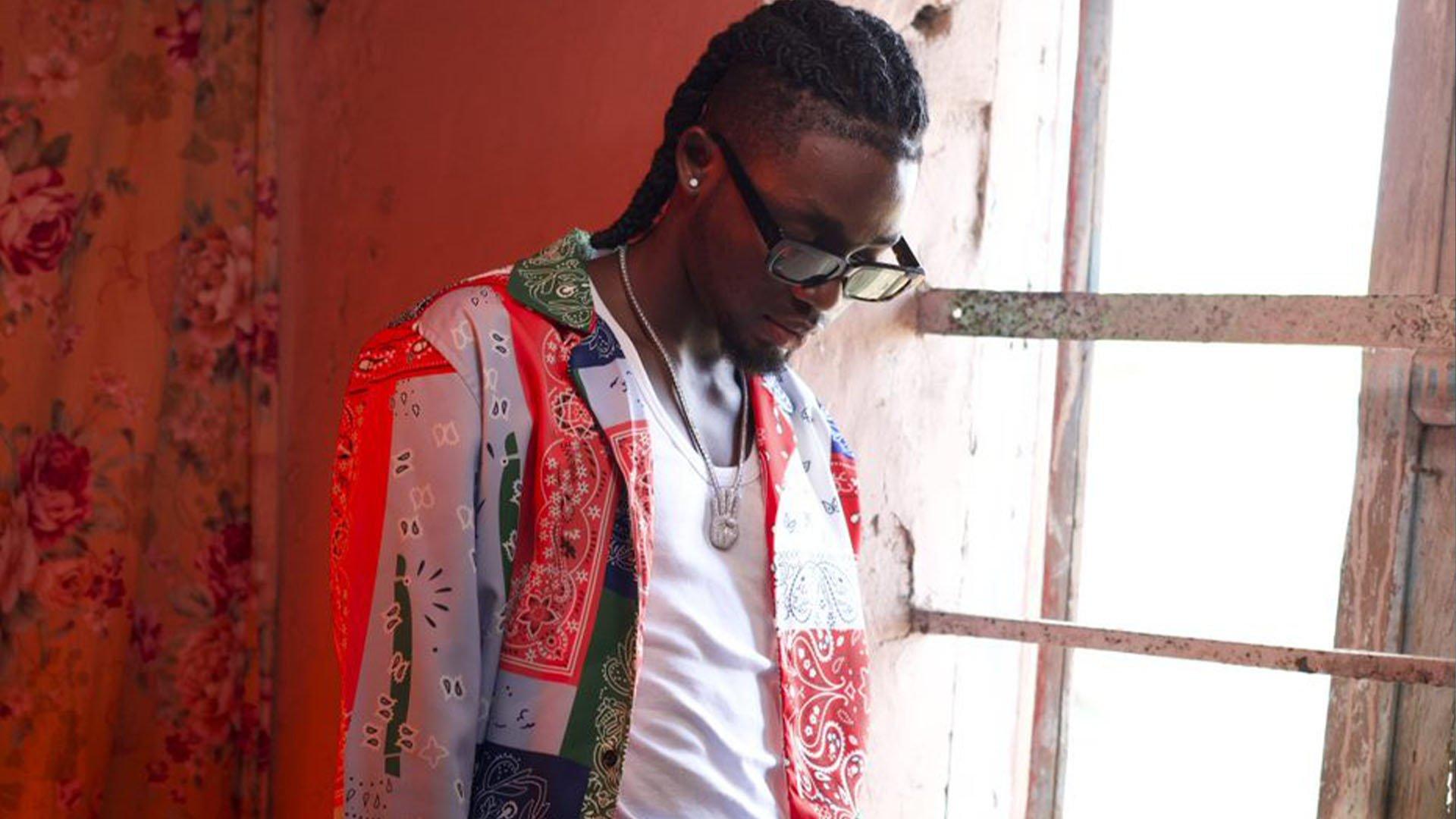
news
It Goes To 11: Omah Lay Shares His Favorite Musical Equipment And Breaks Down His Old-Fashioned Writing Process
Nigerian singer/songwriter and producer Omah Lay details why his favorite musical equipment is simply pen and paper
Despite having no full-length project to his name yet, Nigerian singer/songwriter and producer Omah Lay has amassed over 100 million streams on Spotify. The 24-year-old hitmaker has a proven formula, one that starts with a piece of equipment that many songwriters have left behind.
"When you talk about…the process of making music, writing and singing, my favorite piece of equipment is my notepad," Lay tells GRAMMY.com. "Writing with my phone, I only write down the right [lyrics], but with a notepad, I can jot down the ones that don't make sense and then later I can use it for another song."
Watch one of Africa's brightest rising stars detail his unique writing process in this episode of It Goes To 11.
Omah Lay's pen-and-paper songwriting technique continues to prove successful, as "Understand" is his best-performing track to date. The 2021 track has racked up over 34 million views on YouTube and 20 million streams on Spotify.
Make sure to check back every Wednesday for new episodes of It Goes To 11.
Get To Know The First-Ever Best Global Music Performance Nominees | 2022 GRAMMYs
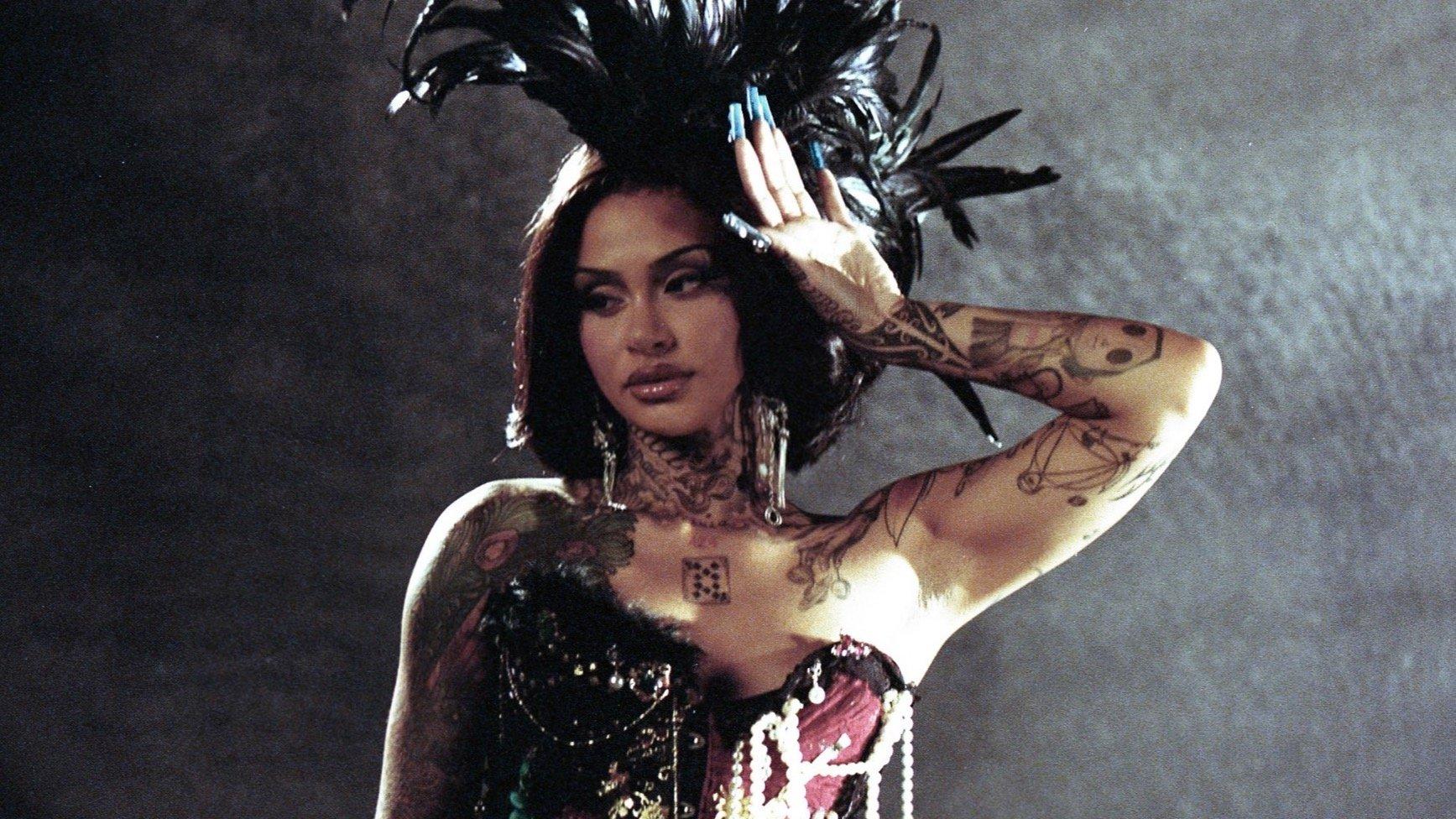
Photo: Mia André
interview
Crashing Into The Present: How Kehlani Learned To Trust Their Instincts And Exist Loudly
"I want this next batch of music to feel like the most fiery parts of me," Kehlani says of her new album, 'Crash.' The singer/songwriter speaks with GRAMMY.com about embracing the moment and making an album she can headbang to.
After finishing the first mixes of their new album, Kehlani knew exactly what she needed to do: head to Las Vegas.
The L.A.-based, Oakland-born singer/songwriter had always identified with Sin City: "I’m full of juxtapositions," she tells GRAMMY.com. "Vegas is this crazy bright light city in the middle of a vacant desert that has weddings and also strippers." Fittingly, Kehlani harbored a very Vegas-like image in their head while creating Crash, a record built on blaring neon, glowing smoke, and the highest highs.
Crash drops June 21, and is Kehlani's fourth solo album. She burst onto the scene in 2009 as a member of teen sextet PopLyfe, but their 2014 debut solo mixtape Cloud 19 announced a far more complex character. Their debut full-length, SweetSexySavage, was released three years later to critical acclaim, with two more albums and a handful of platinum-certified singles following. As if that weren’t enough, Kehlani added acting, appearing in "The L Word: Generation Q" and a cameo in Creed III.
And while Crash embodies the evolution and growth through all those experiences, the record builds a hyper-real language all their own. Beyond any sense of R&B or pop, soul or hip-hop, Crash finds Kehlani chasing passions that refuse to fit in any box, shifting multiple times within a track — refusing to focus on anything but the moment.
"A crash isn't anything from the past. It isn't the anxiety of what's about to happen," she says. "It's the height of the moment. It's right now."
Nearing the release of Crash, Kehlani spoke with GRAMMY.com about finding inspiration from international music, getting their five-year-old to sing on the album, and their need to stage dive.
What’s it like living in Los Angeles after growing up in the Bay Area?
I moved to L.A. when I was about 17. I had already left the house. I left the house at 14, and by the time I was almost 18 it was the appropriate time for me to situate in a new place. L.A. and the Bay are like cousins. Do we have differences? Absolutely, things that are fundamental to us, but when you leave California, you can really see that we're just like a big family.
Had you been dreaming of L.A. as a place where you could pursue art? Were you already set on that goal?
It was the closest place that a young, very broke person could go and work in music. I'm sure there were other places with musical homes, musical cities, but if all I had to do was get on a $15 bus and go find someone to stay with in L.A., I was gonna do it for sure.
That’s the same ambition that I feel drives this new record, which is just so dense and full of surprises. That includes the lovely retro radio intro to "GrooveTheory," where you move from this ‘60s pop feel to the present. That’s such a smart way to foreground your evolution.
I think the second that we made that song and then turned it into ["GrooveTheory"], I was like, This feels like it encompasses where I'm headed, this whole new sound.
Once that radio dials in and it comes in with R&B elements, it's producing where I'm headed, but also remembering that my core hasn't changed. Especially the energy of what I'm saying in the song, like, "I'm kind of crazy," it's introducing this energy difference on this album. I feel like that's the biggest change, and that's what's so prevalent in this whole rollout. Energetically, I'm on a whole different type of time.
You can sense it. 'Crash' feels really rooted in self-expression and personal growth, and when you listen to it as a whole, it really does seem like an evolution story. Beyond just the genre and style, how do you feel the way that you've expressed your true self has shifted over the years?
Thank you! That's been the feedback I've gotten from pretty much everyone who's listened, and I don't know what I expected, but it wasn't this. I have realized the public's understanding of me and the general consensus for so long, and I also realized how multi-faceted I am to people.
People get really confused when I express all the sides of my personality. They’re either, like, "Okay, she makes really sweet love songs," or "We've seen you be political, we've seen you come out, we've seen you be a family member." And then there's a lot of people who are, like, "I feel like she's f—ing crazy. I've seen her in multiple relationships. I've seen her be angry. I've seen her get online and cuss people out."
I want this next batch of music to feel like the most fiery parts of me. I want it to feel like the most present and energetic parts of me. I don't want anything to feel somber. I don't want anything to feel reminiscent. I think a lot of my albums in the past have been me looking back, and sitting in that feeling and detailing it. I just wanted [this album] to feel right here, right now, which is why the title came about. A crash isn't anything from the past. It isn't the anxiety of what's about to happen. It's the height of the moment. It's right now.
That’s unfortunately a story you hear too often about artists of color — that essentialization, where you can only be seen as one thing. R&B often gets hit with those same issues. Throughout your career you’ve stood up to those expectations, and "Better Not" on this album is such a good example of that. It’s a left turn, a stylistic contrast and an open conversation with the listener. You cleverly fuse that intentionality with a voice that’s stronger than ever.
In the past, I have had moments where I would make the song and [start recording], and there would be so many versions of each song on different microphones, recorded in different places.
"Let me try vocal production. Let me try to go back and work with this version again." I went back and did vocal production with Oak Felder, who did all the vocal production on SweetSexySavage. When I come back to some of my favorite vocal production moments, it was moments like "Distraction" or "Advice" or "Escape" — songs on my very first album — and I wanted to get that feeling again. Where it's lush where it needs to be, but also that I really mean what I'm saying.
That started with the approach in the songwriting. Once I had the songs and I had to go back and deliver them, I had enough time to listen and listen, to learn the songs and identify with them. We would make music all day and then go out, and we would be in this sprinter van on the way to going out, and, like, bang, the songs we just made, the energy was just different. It allowed me to be present in a different way where my voice is able to show up like that.
Which again ties perfectly to crashing into the present. As someone from South Africa, I love that the other guests that you included represent different cultural viewpoints. You worked with Young Miko from Puerto Rico, Omah Lay from Nigeria. Having that musical dialogue is so powerful.
We had so many conversations about how America's in the backseat often when it comes to music. We have our moments, and it's fantastic, like Beyoncé’s Cowboy Carter. There's a culture that is super American, that is Black, that historically needs to be dived into. It needs to be shown that we do have something here.
So many people that don't speak Spanish bang Bad Bunny all day. Amapiano’s taking over; Tyla’s going up. It's really not here. So that wasn't a conscious choice. It's just what we've all been listening to, what we've been loving.
Read more: 11 Women Pushing Amapiano To Global Heights: Uncle Waffles, Nkosazana Daughter, & More
Speaking of guests, I wanted to ask about your daughter, whose voice is on "Deep." Was she just in the studio and you got her singing?
So those vocals on that, that’s actually my little sister and my goddaughter. And [my daughter] was in the room and she started singing along. She has perfect pitch; she's always freestyling or singing or making something up.
I was like, "You want to just go sing on it?" What's on there is her first take. Literally. She did it the first time, all the way through, perfectly. I was like, "Well, that's it, guys. I can retire."
That track is so lush. It feels so alive. Were you working with a full band?
[Producer] Jack Rochon, who I did a lot of the music with, he just is a freaking genius music whiz. Honestly, he's one of the most humble people that I know, and deserves credit for how amazing a lot of this album is.
Talking about touchstones, there's a Prince energy to the title track. Did you have any new inspirations or influences for this record?
Thank you! My main focus for this album came from going on tour for my last one and making such a pretty, sweet, intimate album, and then playing some of the biggest venues of my career. At some point I had to rearrange the setlist to add in a lot of the album before that one, because it was just more energy on the stage. By week two of tour, the setlist had completely changed. I knew that I was playing venues on this next tour that I've dreamt about, places that I can't fathom that I'm playing, like Barclays Center.
I do a lot of things for, like, my inner child, and this is such a move for my inner child. Like, You're about to go play Barclays. Do you want to look back and say, ‘I rocked out and played Barclays’? I'm a person who headbangs on stage. I stage dive. I wanted to create an album that would ring through a venue like that. I want people to be engaged again. I'm not looking for the lighters and the somber, holding each other — which will occur regardless, because it's a me show.
But I really wanted people to be in their bodies, and their heart’s exploding and the ground’s shaking. So that's what we accomplished. I wanted to have fun. This album is so fun to me. It’s a place of fire in my heart.
It took me a second to get the word play on "Eight." I loved the track, and then suddenly I was like, 'Oh… I knew there was something raunchy going on here.'
[*Laughs.*] "Eight" was super fun, and shoutout to the boys that I did it with, because they made it everything for me.
I didn't come up with the wordplay. My boys did. Like, "This is how you talk!" I was like, "It is! This is perfect." Once I got in to fix things, add things, add my own spin, and finish writing, my favorite part was that it sounds like a Brandy song. She's my favorite.
I also wanted to ask about the Nina Sky sample on "After Hours."
That was mine. I was like, "What can we flip that when it comes on, my generation loses their mind?" And for me, every single time that Nina Sky comes on in the club, everybody's like "Woo!" And then you see how many songs were made from that same sample, and they're all songs that make us lose our minds.
I went into the room with the producers, and I was like, "So, I want to flip this, but I want you to make it to where it doesn't become one of those where the whole thing is just a sample."
Similarly, "Lose My Wife" balances breeziness with high emotional stakes. Is finding a balance like that just natural for someone so capable of juxtaposition?
The second that we established that [the record] felt like Vegas, I knew what components were missing from the energy of how I feel the second my car crosses the line into the city of Las Vegas. I knew I was missing that feeling of the next morning when you realize you went on this high and you come down. I wanted to create these scenarios that weren't necessarily applicable to me, but captured that emotion. I've been there before, and I want people to be like, Damn, I've been there before. I know this feeling.
I recorded that song at 4 in the morning with a sinus infection. The second that we finished it, everybody was like, "You can never re-sing that. Don't try to make another version, you're not gonna be able to sound like that again." All the chatter in the background of that song is really everybody who was in the studio that stayed up to just hang out. We had the tequila out, it was perfect. That was probably one of my favorite moments of making the album.
It takes a while as an artist to reach a place where you can capture those moments. You said before that people try to figure you out, and I mean this in the best possible way, but it feels like now you don’t care if they can’t figure you out.
I don't give a f—anymore, yeah. And that was a very important thing for me to learn. I used to care so much, and I would spend so much time explaining myself online, in music, in interviews, on stage. I realized that you're damned if you do, damned if you don't.
I've been so forward-facing with my heart my entire career that I've left a lot of room for people to consistently pedestal me and then critique me, for people to want to tear me down. I realized I'm just being present, here, existing loudly in front of a billion people, and whichever way that goes is how the cookies gonna crumble. Me giving a f—? I'm the only one it's affecting at this point, for sure.
Angélica Garcia's Intuition: How 'Gemelo' Was Born By Embracing L.A., Ancestry & Spanish Language
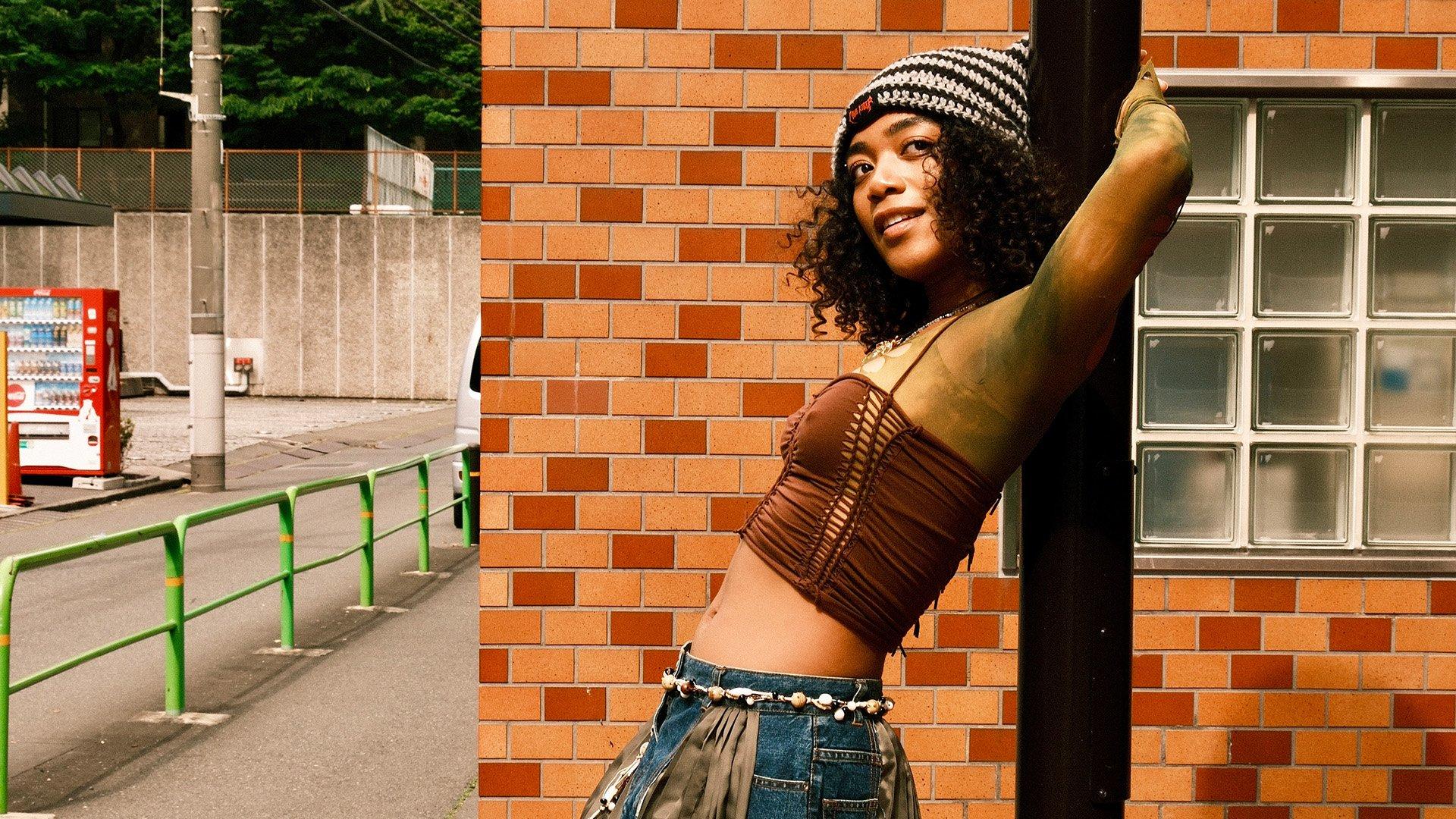
Photo: Ryusei Sabi
video
It Goes To 11: UMI Shows Off The Studio Gear That Streamlined Her Recording Process
Neo-soul singer UMI introduces her Apollo Twin X interface, the piece of musical gear that allows her to crank out her ideas "immediately."
Neo-soul singer UMI describes herself as a "multi-dimensional artist" whose ideas often come to her in the spur of the moment — and she "needs to get it out immediately."
Thanks to her favorite musical gear, the Apollo Twin X interface, she can bring her ideas to life on the go.
"Instead of going directly into your computer [to record], you can use something like this," UMI explains in this episode of It Goes to 11. "It helps to enhance the sound of what you're recording and makes the recording process easier."
Before she invested in her Apollo interface, she says she used to buy cheap ones for $50 or $100: "I thought I was getting the best experience, but then, I went to a studio. They had one of these. Ever since then, I've been like, 'This is my baby!'"
As a self-proclaimed "studio gear nerd," UMI exclaims that the Apollo Twin X isn't just a fancy part of her collection — it's changed her process altogether. "I don't have to book studio time anymore," she says. "I can do it all in my house!"
Press play on the video above to learn more about UMI's cherished Apollo Twin X interface, and check back to GRAMMY.com for more new episodes of It Goes to 11.
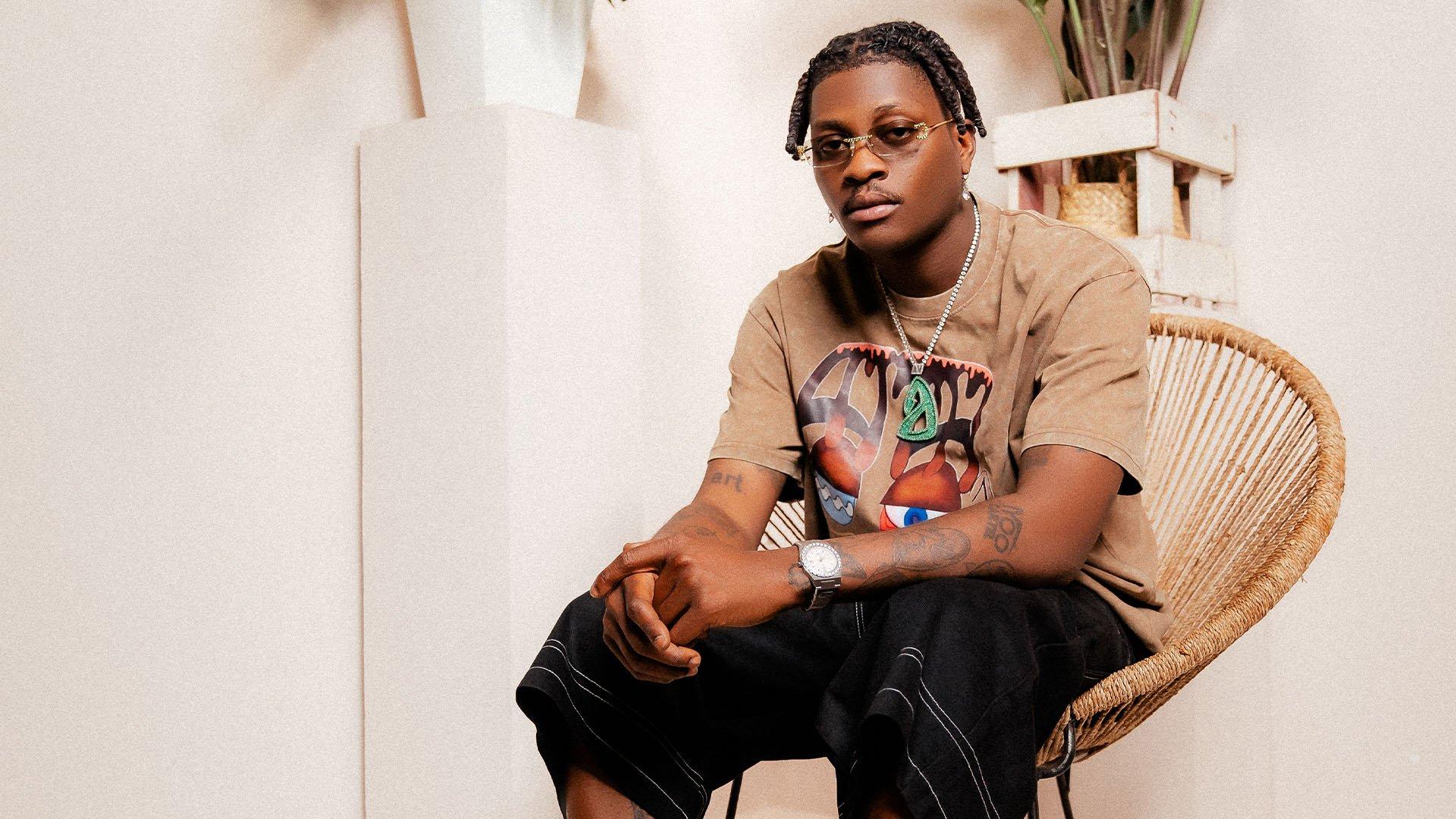
Photo: Mr. Earl
video
It Goes To 11: PsychoYP Reveals How An Equipment Explosion Led Him To Making "Crazy" Music
Nigerian rapper PsychoYP introduces his Aston Spirit condenser microphone that he found when he had to replace all of his equipment — which ended up being a blessing in disguise.
When a faulty extension box burst PsychoYP's equipment into flames, the Nigerian rapper was forced to repurchase everything from scratch. In doing some extra research on replacement items to prevent the accident from occurring again, he discovered a new favorite: his shiny Aston Spirit condenser microphone.
As PsychoYP recalls in this episode of It Goes to 11, once he purchased the Aston Spirit, "I knew I was about to start making some crazy music. The producer looked at me, and I looked at him and was like, 'I feel like we might be onto something.'"
The rapper says the Aston Spirit captures his voice perfectly, and even opened up a new side of his artistry: "It made me express myself more — open my mind a bit more while creating."
Despite the initial pain of losing his equipment, PsychoYP asserts that the accident resulted in a forever piece. "I feel like I'm going to have a catalog of microphones, but this will always be there," he says. "At least in my top two."
Press play on the video above to learn more about why PsychoYP loves his Aston Spirit condenser microphone, and remember to check back to GRAMMY.com for more new episodes of It Goes to 11.
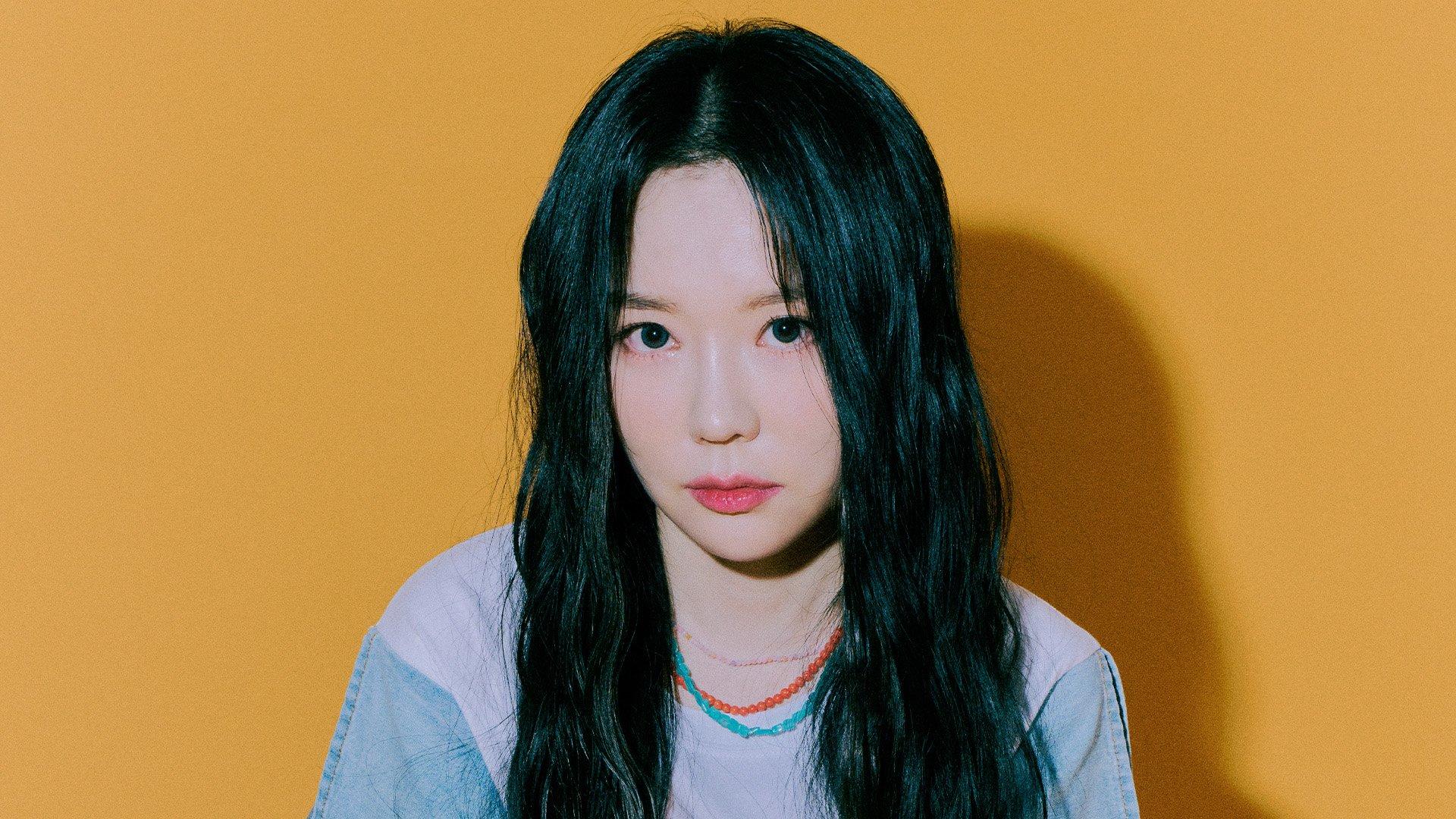
Photo: Courtesy of J.Fla
video
It Goes To 11: Meet J.Fla's "Best Friend," Her Acoustic Taylor Guitar
South Korean singer J.Fla shares the history of her beloved Taylor guitar — and why she spends most of her time with it.
As a longtime fan of Taylor guitars, it was only a matter of time before South Korean singer J.Fla invested in one of her own. But when she finally purchased it, there was a small bump in the road as she waited for it to join her collection.
"This guitar arrived later than expected," she recounts in the newest episode of It Goes to 11. Feeling "nervous and excited" about the delayed delivery, J.Fla says she was "overjoyed" once it finally landed on her doorstep.
J.Fla now considers the guitar her best friend, "because I spend most of my time using this guitar." She plays it when she produces her music and makes melodies.
Besides the fact that the guitar works perfectly for J.Fla's small hands, the singer also loves its design, color, grip, and sound. "This guitar is the dream guitar I had always wished for," she beams.
Press play on the video above to learn more about J.Fla's bond with her acoustic Taylor guitar, and check back to GRAMMY.com for more new episodes of It Goes to 11.
9 Essential K-Pop/Western Collabs: From BTS And Megan Thee Stallion, To IVE And Saweetie
